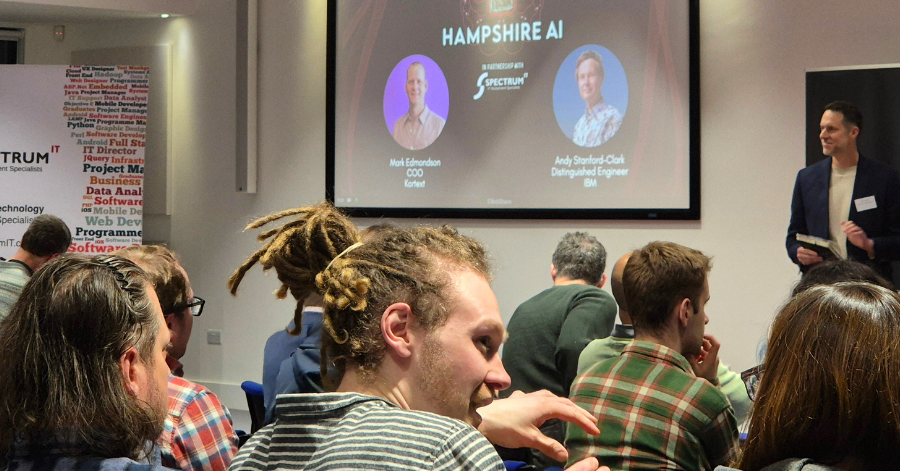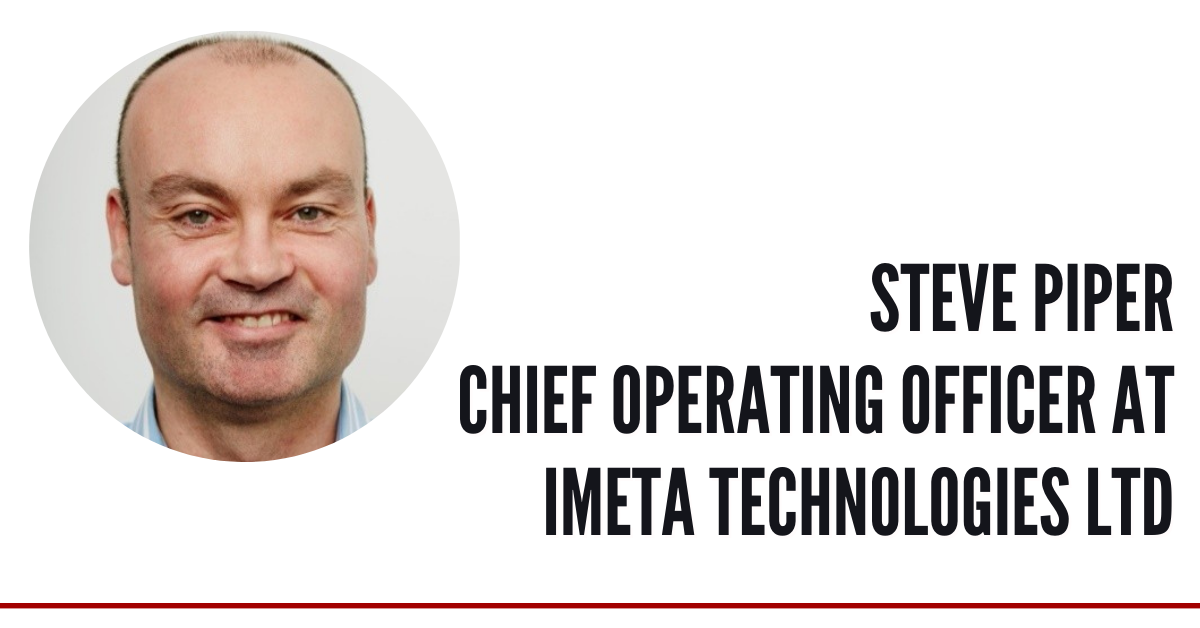
An interview with Steve Piper of iMeta Technologies Ltd
17 Aug, 202110 Minutes
In this client interview - Steve Piper, COO at iMeta Technologies Ltd talks to us about his career to date; how the tech industry has changed, recruiting and how he keeps up with the ever-changing tech.
What is your role at IMETA Technologies?
Chief Operating Officer, which means I’m responsible for all of our day-to-day operations; covering software development, customer projects and end user support, internal IT, HR and Finance.
How did your career start out in software and what did you do to get where you are today?
I think from my A-Levels, I knew that I wanted to be involved in something to do with computers. I then chose a degree that had an element of working in the computer industry as part of the course and then things fell into place from there. My first full time job was working for a large software consultancy in London (called Logica at the time). That role gave me a lot of exposure to different roles and companies and lots of customer interaction. I stayed at Logica for 6 years but I realised fairly early on that I was better suited to the people and management side of things rather than staying technical as a developer. I haven’t written a line of code since then!
How have you seen the tech industry change over the years?
I think the biggest one, is that when I started out, way back in the early nineties, we didn’t have internet, mobile or any of the other related tools and platforms. It was much more paper and human interaction based. If you didn’t know how to do something and neither did the person next to you and there wasn’t a book in the office, you were pretty stuffed! I know that sounds crazy now, certainly to my kids. It’s definitely something that makes you feel old. Perhaps if I’d been able to google some more answers, I’d still be a developer…
In recent years, I think has been a natural extension of that with all the focus on cloud solutions. We’ve moved very quickly from pure SAAS concepts to PAAS and IAAS models across the Enterprise. I think that shift has also accelerated due to the pandemic as people question the need for any office based infrastructure at all.
What advice would you give to someone starting out?
Always try and understand the real business reason for the code you are writing. Try and work with non-IT people to help them understand the technology and the benefits. Hopefully the historic divide between “business” and “IT” will continue to disappear but the technologists need to help make that happen.
What advice would you give to companies looking to recruit?
Understand what makes your company unique and what you are looking for from an individual as a person as well as their technical skills.
Make sure you put sufficient time into the recruitment process. It’s worth it, in the long run, to make sure you get the right people. I’d always recommend at least a 2 stage interview process with different people in the recruitment process. This gives both parties the time to reflect and consider relevant questions and for the recruiter to get a range of opinions before making a decision. It’s important that the interviewee is very clear on the role, company and expectations too. It’s not just a one-way assessment.
It's also important to build a good network of contacts and find a recruitment agency you can trust. If a recruitment agency understands who you are and what you are looking for, then that can help save a lot of time and frustration all round.
What is the biggest challenge facing software businesses now?
I think prior to the pandemic, I would have said that rate of change and market disruption is accelerating which makes it harder to stay relevant unless you have a market niche or can invest sufficiently in emerging tech and trends. However, I think now one of the key challenges will be engaging a remote or hybrid workforce. Software development is obviously something that can be done in a distributed environment, but companies still need to maintain a culture and focus, and I think that will be interesting to see how that plays out over the next few years.
What does it take to attract and retain tech talents?
There are the obvious things I guess, like a decent salary and benefits package but I don’t think that’s enough to retain or motivate any of your people on its own. I think the culture of a company is key and how flexible you can be as an employer. Of course, that has all undergone massive change due to the pandemic, so I think how to demonstrate that in a remote or hybrid working world is going to be a new challenge. In terms of tech talent, I have always looked to find ways to encourage them to innovate and collaborate. It may not always be possible to use the latest bleeding edge tech on every project but if there is a forum in which to encourage discussion and understanding then I think that helps keep people engaged.
Tell me about the last hire you made. What was your process and who did you hire?
We were hiring for someone to help manage our product quality. I think the role of quality assurance or testing is one of the more interesting areas and has certainly changed from my early days in term of expectations for the role. I have always looked for a rounded skillset when it comes to testing and somebody that is comfortable working in the requirements capture as well as the requirements testing. We have always focussed on automating testing where possible but there is still very much a role for testing specialists, although the expectations have shifted to that becoming a more technical role in itself.
In terms of process, as above, we ran a multi-stage process with initial telephone conversations for potential candidates. The initial full interview was then with members of the test and dev team and then if successful, there was a second stage with the test manager and one of our project managers. We make sure that everybody gets input on their thoughts as to the technical ability as well as overall fit within the business before we make our decision.
How do you keep yourself up to date with the latest technology?
I tend to read various industry blogs and websites but mainly it’s by staying connected with my network and discussing techs and trends. I still attend the technical discussion groups at iMeta too which is a great way to get a high level view of what’s new and interesting. If I hear about something through a number of sources, then it’s probably something that’s going to get some market traction and worth being aware of.
Get in touch if you would like to feature in one of our client interviews.




